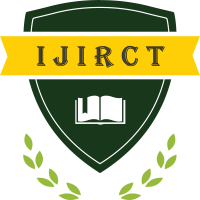Published In
Publication Number
Page Numbers
Paper Details
Energy-Efficient Time Synchronization in Wireless Sensor Networks Using TCXO-Based Clock Drift Compensation
Authors
Anand Kumar Singh
Abstract
Wireless sensor networks (WSNs) play a crucial role in applications that require precise time synchronization, such as industrial automation, fire detection, and environmental monitoring. Synchronization ensures accurate data collection, efficient communication, and optimal energy utilization in battery-powered sensor nodes. Traditional synchronization methods often rely on a combination of low-frequency clocks during sleep mode and high-frequency clocks while active, along with periodic synchronization beacons to maintain time accuracy. However, software-based clock correction techniques suffer from long-term drift due to variations in environmental conditions, oscillator inaccuracies, and cumulative timing errors over extended operational periods. This paper introduces an enhanced synchronization mechanism that integrates high-precision crystal oscillators with ultra-stable ppm tolerance for hardware-assisted timekeeping. By replacing conventional software-based drift correction with a temperature-compensated crystal oscillator (TCXO) or a high-stability quartz crystal oscillator, the proposed approach significantly improves long-term synchronization accuracy while maintaining energy efficiency. The use of a low-drift 32.768 kHz crystal oscillator for sleep mode and a 20 MHz TCXO for active-phase timing minimizes clock errors, reducing the need for frequent synchronization updates. By integrating crystal oscillators with ultra-stable ppm tolerance, this work enhances the reliability of time synchronization in WSNs, particularly for scenarios requiring prolonged autonomous operation. The findings suggest that adopting hardware-assisted time synchronization can extend the operational life of sensor networks by reducing drift-induced errors while maintaining minimal power consumption. Future work will explore adaptive drift compensation mechanisms that account for environmental variations, further refining timekeeping precision in diverse real-world deployments.
Keywords
Wireless Sensor Networks (WSNs), Time Synchronization, Clock Drift Compensation, Hardware-Assisted Synchronization, Temperature-Compensated Crystal Oscillator (TCXO), Low-Power Timekeeping, Adaptive Synchronization Mechanism, Deep Sleep Mode Synchronization, Energy-Efficient Synchronization, Synchronization Accuracy Optimization, Multi-Node Synchronization Protocol.
Citation
Energy-Efficient Time Synchronization in Wireless Sensor Networks Using TCXO-Based Clock Drift Compensation. Anand Kumar Singh. 2022. IJIRCT, Volume 8, Issue 4. Pages 1-14. https://www.ijirct.org/viewPaper.php?paperId=2503096
